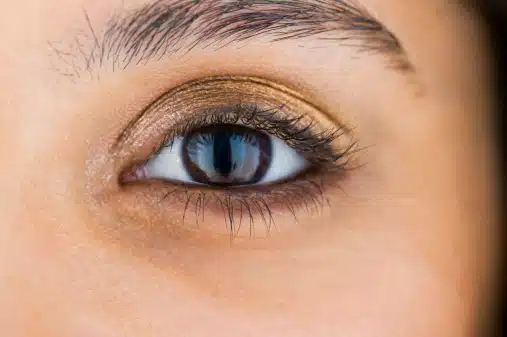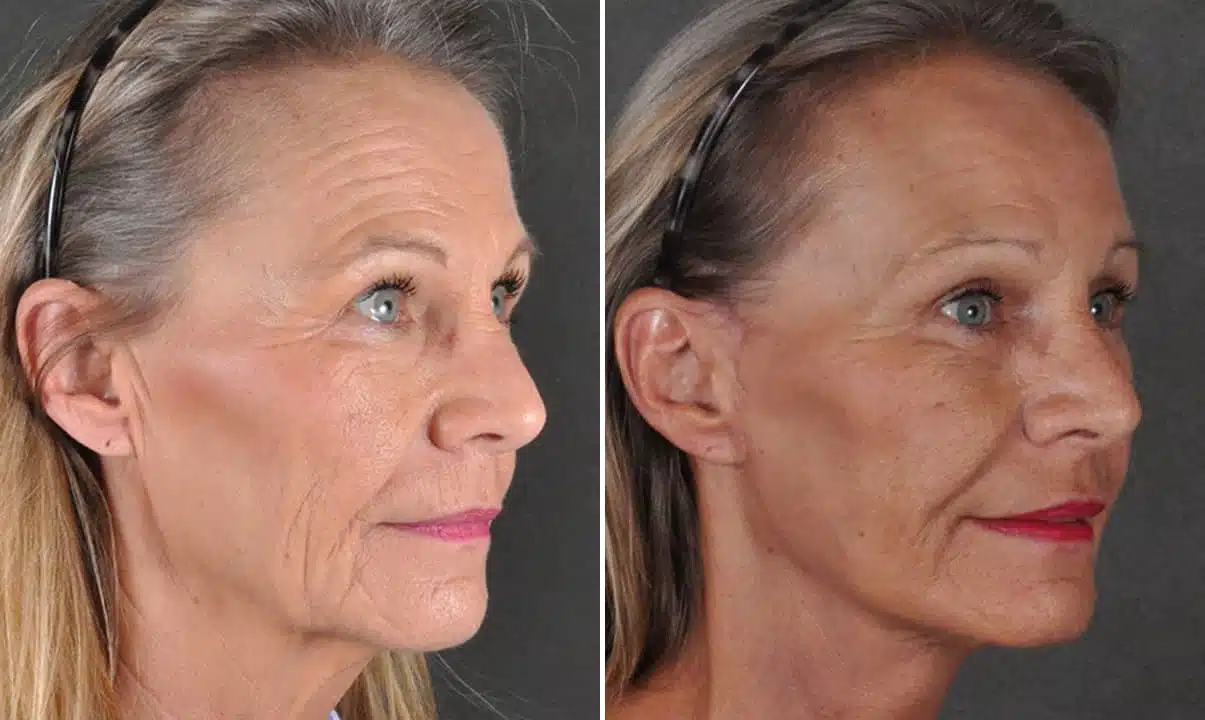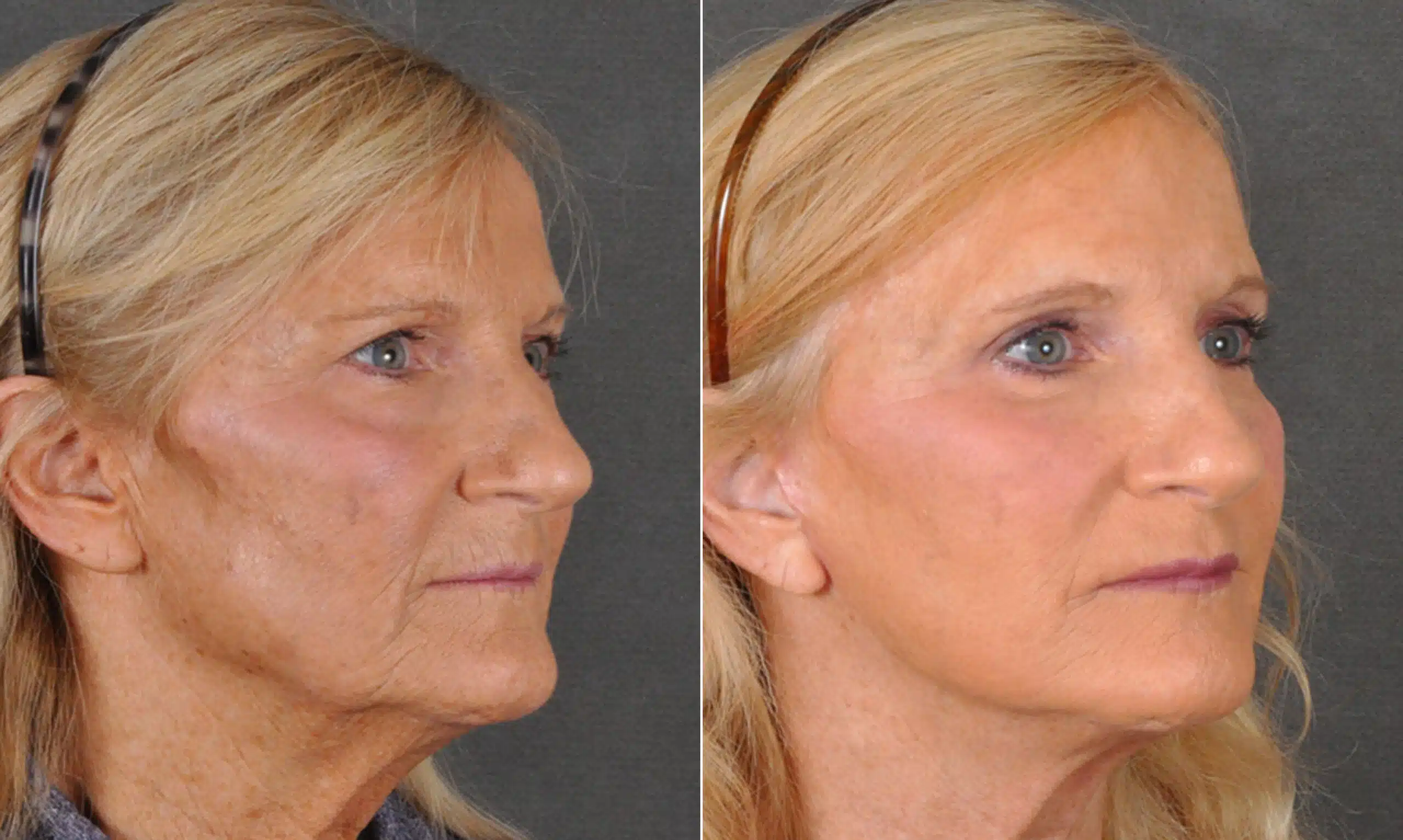Ever had itchy eyes after cosmetic eyelid surgery and wondered if it’s normal? Blepharoplasty, whether performed on the upper or lower eyelids, is known for its rejuvenating effects—but the recovery period can come with a few surprises, including irritation and dryness.
If you’re experiencing itchy, burning, or gritty eyes, you’re not alone. These symptoms are more common than most people realize and are often a completely normal part of healing. Read on to find out why they happen, how long they last, and what you can do to feel better.

Is Eye Itching Normal After Eyelid Surgery?
Experiencing dry, burning, or itchy eyes after blepharoplasty is a common postoperative symptom. According to studies, many patients report some degree of ocular discomfort in the days following eyelid surgery. This is especially true for procedures involving the lower eyelids, where swelling may temporarily affect tear production or drainage. While these symptoms can be uncomfortable, they are typically mild and short-lived. In most cases, they resolve on their own as healing progresses, and with proper care, they can be easily managed.
What Causes Eye Dryness and Itching Post-Blepharoplasty?
Several factors can contribute to the sensation of dryness and itching in the eyes following blepharoplasty. While these symptoms are typically temporary, understanding their root causes can help patients manage them more effectively and know when to seek professional advice. Here are some common contributors to postoperative eye discomfort:
- Skin Tightness: After surgery, the eyelid skin may feel tighter than usual, which can slightly alter the way the eyelid moves and affects tear distribution across the eye surface.
- Muscle Weakness: Temporary weakness or swelling in the eyelid muscles can interfere with normal blinking, which plays a crucial role in spreading tears evenly.
- Ectropion Formation: In rare cases, the lower eyelid may turn outward (ectropion), exposing more of the eye and leading to increased dryness and irritation.
- Lacrimal Gland Disruption: If the surgery impacts the lacrimal glands or the tear drainage system, it can reduce tear production or alter tear flow, resulting in dry, itchy eyes.
How Long Do These Symptoms Last After Eyelid Surgery?
For most patients, dry and itchy eyes after blepharoplasty resolve within 2 to 3 weeks as swelling decreases and normal tear function gradually returns. This timeframe can vary depending on the extent of the surgery and individual healing responses. Temporary irritation is a common part of the healing process and typically improves without the need for extensive intervention.
In rare cases, however, these symptoms may persist for a longer period. Extended discomfort might signal an underlying issue, such as incomplete eyelid closure or changes to tear gland function. If symptoms continue beyond the expected healing window, it’s important to follow up with your surgeon for further evaluation and care.
SPECIALIST CARE YOU CAN TRUST
You can trust the entire staff to help make your visit as comfortable and safe as possible!
What Treatments Are Available for Postoperative Eye Dryness and Itching?
Fortunately, most cases of postoperative eye dryness and itching can be effectively managed with conservative treatments. These options are designed to soothe irritation, restore moisture, and support the natural healing process without the need for more invasive measures.
One of the most common treatments involves the regular use of lubricating eye drops or artificial tears. These help keep the eyes moist, reduce burning sensations, and flush away any irritants. In some cases, thicker lubricating ointments may be recommended for overnight use to provide longer-lasting relief.
For patients experiencing more persistent symptoms, lacrimal plugs may be used to block tear drainage temporarily. This allows natural tears and lubricants to remain on the eye longer, improving overall comfort. Your surgeon will determine the most appropriate course of action based on your specific symptoms and recovery progress.
When Should You Consult Your Surgeon About Persistent Symptoms?
While mild itching and dryness are normal after blepharoplasty, there are certain signs that indicate it’s time to consult your surgeon. If symptoms persist beyond the typical 2 to 3-week recovery window, it may suggest a more complex issue that needs evaluation. Prolonged discomfort should never be ignored, as timely treatment can prevent long-term complications.
You should also reach out to your surgeon if you experience worsening irritation, vision changes, increasing redness, or signs of corneal inflammation such as sharp pain or sensitivity to light. These may indicate complications like ectropion or corneal damage, which require prompt medical attention. Regular follow-ups and clear communication with your surgeon are key to ensuring a smooth recovery and optimal results.
Before and After Photos


* Each patient is unique and individual results may vary.
Who Should Perform My Blepharoplasty?
Blepharoplasty is a delicate procedure that affects not only the appearance of your eyes but also their comfort and function. That’s why it’s so important to choose a skilled, board-certified plastic surgeon who understands both aesthetics and safety. The right surgeon will help minimize complications like dryness and itching while delivering the natural, refreshed look you’re hoping for.
At Aesthetic Surgical Images in Omaha, NE, our team of four board-certified plastic surgeons brings together decades of experience in facial cosmetic procedures. Each surgeon is ACLS certified and adheres to the highest standards of safety and patient care. We take pride in creating results that look beautiful and feel comfortable. Call us at 402-390-0100 or visit our contact page to schedule your consultation today.
